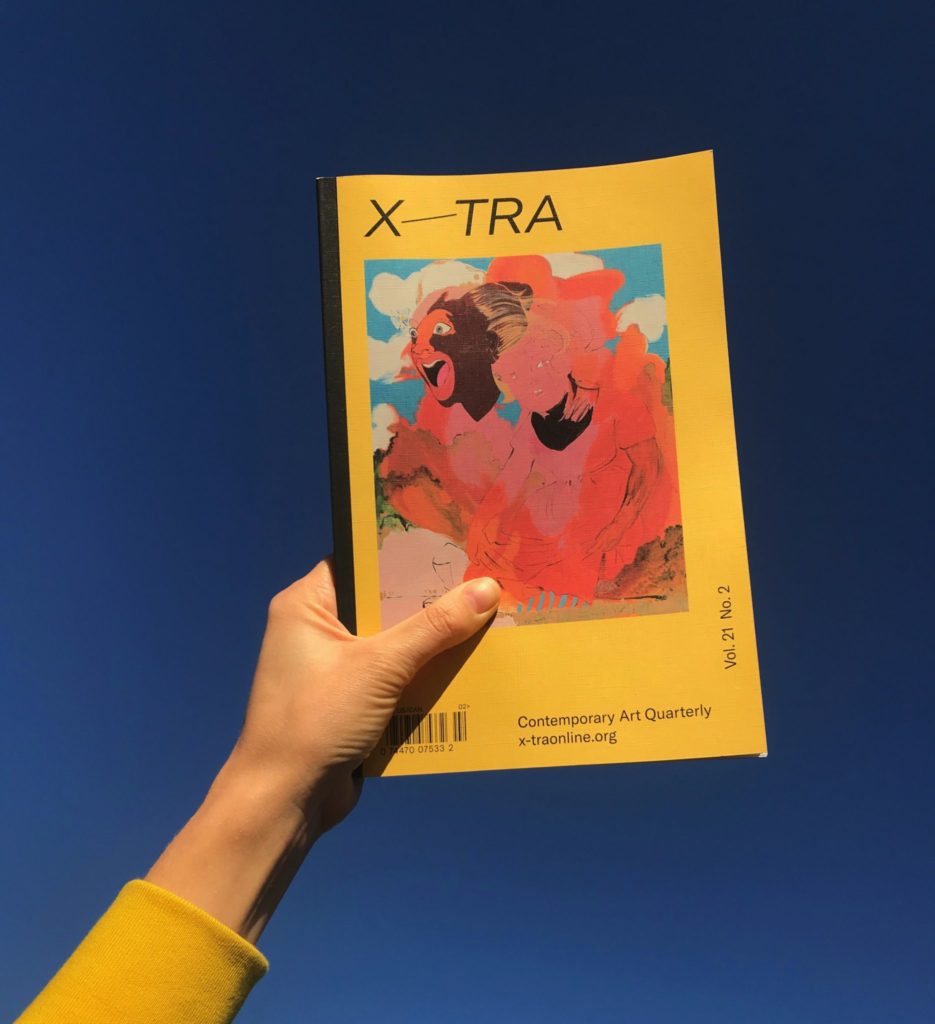X-TRA, a Los Angeles based arts criticism journal, has aimed to create a discourse surrounding contemporary art since 1997. They publish expansive features, historical essays, commissioned artist’s projects, interviews, columns, and substantive reviews all to uplift a range of diverse artist voices and ideas. Originally a garage level startup, founded by a handful of artists as a labor of love, X-TRA is now funded by its own nonprofit foundation, Project X for Art & Criticism (Project X).
Jeff Beall has been with X-TRA and Project X for 20 years and serves on the Board of Directors. Building upon over two decades of history in the L.A. arts scene and with ESC’s guidance, Beall hopes that X-TRA can continue to provide a much-needed critical support for L.A.’s arts community for the next 20 years, and more.
While Project X had steadily grown over the years, they reached a plateau in early 2020. In the midst of the pandemic, the presidential election, and changes in leadership, the Project X team found themselves facing a degree of uncertainty they had never experienced before. Beall’s hope for Project X to sustain the legacy of the journal motivated him to seek out experts in nonprofit management, leading him to ESC.
Project X’s horizontal leadership structure prompted ESC to take a different approach than its traditional customized strategic planning consulting engagement. Project X has two distinct, volunteer-powered boards: the Editorial Board in charge of the journal’s creative process; and the Project X Board, managing the foundation’s operations.
To accommodate Project X’s unique structure and organize priorities, ESC consultants Bea Nemlaha, Jeff Wolfe, and Tim Kittleson collaborated with the entire Project X team, eventually forming a core working group of nine people: three consultants, three members of Project X’s Board, and three members of the Editorial Board. For those who wanted to contribute in other ways, a third working group was created. By approaching the strategic planning collaboratively, a democratic non-hierarchal process was formed.
With coaching from the ESC consultants, the Project X team established their priorities, including improving transparency and trust within the organization, while also continuing to work on diversity and inclusion. To meet Project X’s goals, ESC consultants helped the organization tackle one strategic issue at a time. Each month, the core working group selected a strategic priority, dissected it, and identified a solution. Beall believes that the ESC consultant team has “given structure, purpose and direction to our energy and helped us prioritize the steps we need to take to be most effective and efficient with our limited resources.”
Improvements to internal transparency began by allowing members from the Editorial Board and Project X Board to sit in on each other’s meetings. Taking this crucial step helped remove barriers that were separating those making creative or business decisions. Project X also established a formal, more organized process for onboarding new board members.
To further their diversity and inclusion initiative, Project X created internal bylaws around hiring and decision-making. While in recent years X-TRA has presented many BIPOC artists, both boards recognized that internal staffing did not reflect the diverse arts community that they serve. Establishing these policies was Project X’s first step to reframing how they view and work towards diversity and inclusion in their organization.
ESC’s custom engagement has provided a solid map for the direction of the foundation and X-TRA. When the pandemic forced the team to potentially prepare for the worst, the team’s commitment to and passion for the arts journal motivated them to continue its legacy. According to Beall, working with ESC has helped Project X to rebuild its foundation and he is confident that the organization is heading in the right direction. What once was a passion project of a small collective has turned into an established and necessary space for artists and critics to showcase their work, collaborate and reflect on the art world at large.

